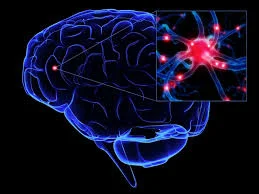Amyotrophic Lateral Sclerosis – Research with cannabinoids

Amyotrophic Lateral Sclerosis (ALS) is a rapidly progressing neurodegenerative disease causing the eventual death of neurons that control voluntary muscles. Studies have shown that cannabis effectively slows the progression of the disease and helps patients control associated symptoms.
ALS (Amyotrophic Lateral Sclerosis) Overview
ALS, or Lou Gehrig’s disease, is a disease that affects neuronal cells in the brain, spinal cord and motor cortex, and is responsible for the control of voluntary muscles. The disease prevents the nutrition of neurons, causing their death. Consequently, the brain becomes unable to control striated muscles. People suffering from ALS may lose the ability to move, eat, speak and even breathe.
The cause of Amyotrophic Lateral Sclerosis remains unknown. There are two types of the disease – sporadic and familial. According to the Association of ALS Patients in the United States, the sporadic type of the disease represents between 90 and 95% of cases of the disease in the country. Familial ALS, which is hereditary, represents between 5 and 10% of total diagnoses. The association reports that the disease generally affects people between 40 and 70 years of age, and is 20% more common in men than in women.
There is no cure for ALS and according to the National Institute of Neurological Disorders and Stroke, most people who develop the disease die from respiratory failure within 3 to 5 years of symptoms appearing. Since there is still no cure, treatment of the disease is restricted to slowing the degradation of motor neurons with the help of the drug Riluzole. However, it does not reverse the neuronal damage that has already occurred, prolonging survival for only a few months.
It is also common for doctors to prescribe medications to help combat fatigue, relieve cramps, minimize muscle spasms, and reduce excess salivation and mucus. Medication is also sometimes prescribed to help with depression, sleep problems, pain, and constipation.
Discoveries about the effects of cannabis on ALS
Cannabis has long been associated with beneficial effects in reducing the rate of progression of the disease, offering relief from symptoms. Preclinical studies indicate that cannabinoids, including psychoactive tetrahydrocannabinol (THC), have antioxidant, anti-inflammatory and neuroprotective effects. Several clinical studies with animals have demonstrated that the administration of cannabinoids can delay the development of the disease and slow its progression, prolonging the life of neurons 3, 4, 5.
Cannabidiol (CBD), another compound found in cannabis, but without psychoactive effects, has been shown to significantly delay the first symptoms of Amyotrophic Lateral Sclerosis 6.
Cannabis can also help patients with ALS manage the symptoms of the disease, such as pain, loss of appetite, depression, sleep problems, spasticity and excess salivation 1, 4. Cannabis combats the pain associated with the disease due to its analgesic and anti-inflammatory effects, in addition to treating spasticity, as it works as a muscle relaxant. At different stages of the disease, cannabis helps patients as an appetite stimulant 4.
Recent studies with cannabis
- Cannabis prolongs the survival of neurons, delays the onset and progression of the disease. Cannabis and amyotrophic lateral sclerosis: hypothetical and practical applications, and the need for clinical studies. http://journals.sagepub.com/doi/pdf/10.1177/1049909110369531
- Cannabis was moderately effective in reducing symptoms of pain, loss of appetite, depression and excess salivation associated with the disease. Research on the use of cannabis by patients with amyotrophic lateral sclerosis. http://journals.sagepub.com/doi/pdf/10.1177/104990910402100206
References:
- Amtmann, D., Weydt, P., Johnson, KL., Jensen, M.P., and Carter, G.T. (2004). Survey of cannabis use in patients with amyotrophic lateral sclerosis. The American Journal of Hospice and Palliative Care, 21(2), 94-104. Retrieved from
http://journals.sagepub.com/doi/pdf/10.1177/104990910402100206. - Amyotrophic Lateral Sclerosis (ALS) Fact Sheet. (n.d.) National Institute of Neurological Disorders and Stroke. Retrieved from
http://www.ninds.nih.gov/disorders/amyotrophiclateralsclerosis/detail_ALS.htm. - Bilsland, L.G., Dick, J.R., Pryce, G., Petrosino, S., Di Marzo, V., Baker, D., and Greensmith, L. (2006). Increasing cannabinoid levels by pharmacological and genetic manipulation delay disease progression in SOD1 mice. The FASEB Journal, 20(7), 1003-1005. Retrieved from
http://www.fasebj.org/content/20/7/1003.long. - Carter, G.T., Abood, M.E., Aggarwal, S.K., and Weiss, M.D. (2010). Cannabis and amyotrophic lateral sclerosis: hypothetical and practical applications, and a call for clinical trials. American Journal of Hospice & Palliative Medicine, 27(5), 347-356. Retrieved from
http://journals.sagepub.com/doi/pdf/10.1177/1049909110369531. - Raman, C., McAllister, S.D., Rizvi, G., Patel, S.G., Moore, D.H., and Abood, M.E. (2004). Amyotrophic lateral sclerosis: delayed disease progression in mice by treatment with a cannabinoid. Amyotrophic Lateral Sclerosis & Other Motor Neuron Disorders, 5(1), 33-30. Retrieved from
http://www.tandfonline.com/doi/abs/10.1080/14660820310016813. - Weydt, P., Hong, S., Witting, A., Moller, T., Stella, N. and Kliot, M. (2005). Cannabinol delays symptom onset in SOD1 transgenic mice without affecting survival. Amyotrophic Lateral Sclerosis & Other Motor Neuron Disorders, 6(3), 182-184. Retrieved from
http://www.tandfonline.com/doi/abs/10.1080/14660820510030149?journalCode=iafd19. - What is ALS? (n.d.). ALS Association. Retrieved from
http://www.alsa.org/about-als/what-is-als.html.

